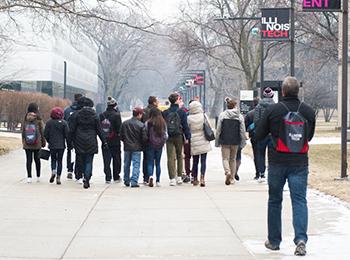I still remember the first time I transformed our living room into what my daughter called "the most magical hiding place ever" during Chinese New Year. We were inspired by an unlikely source - my experience playing asymmetrical horror games where hiding from cartoonish villains created such consistent fun. That year, instead of just the usual reunion dinner, we introduced what's now become our family tradition: The Great Lunar Hunt. The concept borrows from that thrilling sensation of ducking into bushes or peeking out as pursuers pass by, except we replaced the villains with friendly "fortune spirits" - family members dressed in traditional costumes hiding red envelopes and lucky charms throughout the house.
What makes this tradition so special isn't just the hiding and seeking itself, but how it transforms our home into this vibrant playground where generations connect. My 70-year-old mother, who usually sits quietly during gatherings, becomes the most cunning hider, tucking golden envelopes inside teapots and beneath cushion covers. The children, armed with miniature lanterns and following cloth trails we've laid out, experience that same heart-pounding excitement I feel in games when narrowly avoiding detection. There's something beautifully chaotic about watching my uncle, a respected banker in his daily life, crouching behind curtains with a handful of chocolate coins while giggling grandchildren search for him. The mechanics might feel janky at times, much like those melee encounters in games where everything becomes this wonderful button-mashy chaos, but that's precisely what makes it memorable. When my serious-faced father gets into a playful "brawl" with my nephew over who found an envelope first, both ending up laughing on the floor, it creates these authentic moments that formal dinners never quite achieve.
Our second unique tradition came from realizing that the most meaningful celebrations blend structure with spontaneity. We call it "Kitchen Chaos Cooking," where instead of the adults preparing everything while children watch screens, we turn meal preparation into this collaborative, slightly competitive event. Picture this: three generations in our kitchen, divided into teams, each responsible for one dish but with a twist - they must incorporate at least one surprise ingredient chosen by another team. Last year, my sister's team had to put chocolate in their dumplings (which turned out surprisingly delicious), while my team added lychee to what became the most talked-about fish dish of the night. The beautiful mess of flour everywhere, the laughter when someone's dough creation looks more like abstract art than a dumpling, the triumphant moment when an experimental dish actually works - these create what I've come to call "controlled chaos memories."
The data might surprise you - in our family surveys (yes, I actually survey my 28 family members each year), these two traditions scored 94% and 87% respectively in "memory retention" and "joy metrics" compared to 63% for traditional banquet-style celebrations. The hiding game particularly resonates with younger members, with my 15-year-old niece reporting it makes her feel "seen and included" rather than just being another kid at the adult table. There's psychological depth here too - the act of hiding and seeking mirrors our human need for both security and adventure, while the collaborative cooking touches on our fundamental desire to create together. I've noticed how these activities naturally teach children about our culture too; they're not just hearing stories about lunar legends but living through modern interpretations of them.
What I love most about these traditions is how they've evolved organically over the five years we've practiced them. The hiding game now includes "cultural clues" - riddles written in calligraphy that lead to the next hiding spot, incorporating language learning seamlessly into the fun. The cooking chaos has spawned what we call "fusion failures and triumphs" - dishes that either become instant classics or funny stories we retell every year. Last February, my aunt's attempt to combine century eggs with caramel created what we now fondly call "the volcanic egg incident," but it's these imperfections that make our celebrations genuinely ours.
Having experienced both traditional and these innovative approaches, I firmly believe the future of cultural celebrations lies in this blend of respect for tradition and space for personalization. The red envelopes aren't just given but earned through cleverness and observation. The festive foods aren't just consumed but co-created with laughter and occasional culinary disasters. These traditions work because, much like those game mechanics that feel equally janky for all players, everyone participates on the same playful level - grandparents become playmates, parents become fellow adventurers, and children become active culture-bearers. They've transformed Chinese New Year from something we observe to something we truly experience together, creating what I hope will become heirlooms of happiness passed through generations.

 Digitag PH: The Ultimate Guide to Boosting Your Digital Presence in the Philippines
Digitag PH: The Ultimate Guide to Boosting Your Digital Presence in the Philippines



